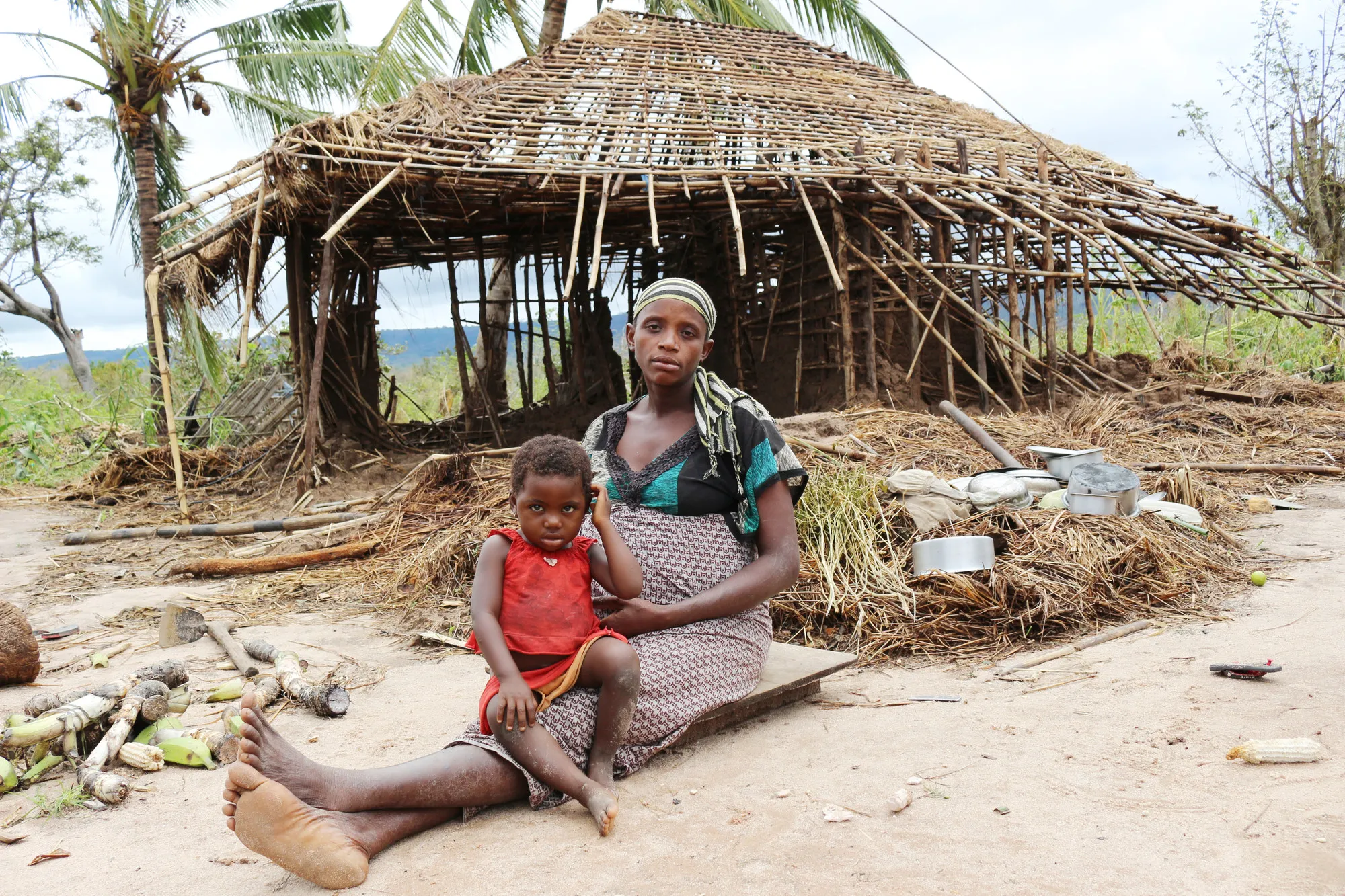Nhamu Sufu chokes back tears as she shares how she lost her house and belongings after Cyclone Kenneth hit her village of Bangala, in Mozambique’s Macomia district, last week. Nhamu, a pregnant mother of five, used to own a three-bedroom house. Kenneth reduced Nhamu’s home to rubble.
“This is all what is left,” she says pointing at a pile of mud and sticks behind her. “We have been sleeping in the open for the past week.”
Incessant rains induced by Cyclone Kenneth continue to hamper rebuilding efforts. Many people have erected makeshift grass-thatch structures as they wait for the weather conditions to stabilize. Many are still traumatized by Kenneth and fear that their temporary homes may not hold for long as the rain persists.
Communities running out of food
Nhamu and others in her community had a good crop yield and expected a better harvest this year. But the cyclone hit before she and others were able to move their crops to storage in granaries. The little they managed to salvage is at risk of spoiling because of the wet conditions.
“I can’t take the maize for milling as it is wet. The sun is coming out for only a few minutes before disappearing again. And then heavy rains follow,” Nhamu says. “We are hungry and running out of options for food fast. We are surviving on pumpkins and yams, but they are slowly running out.”

